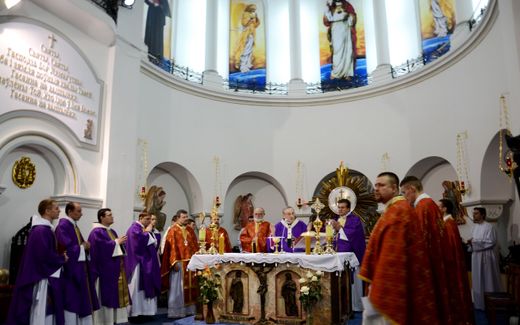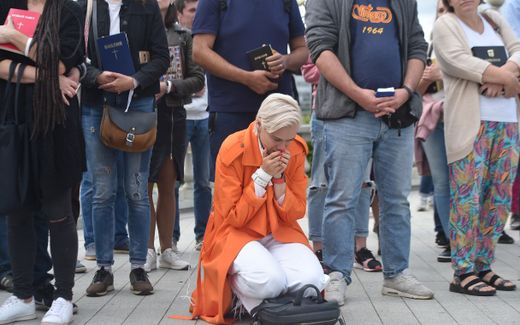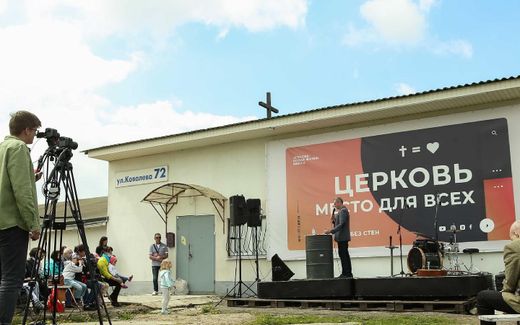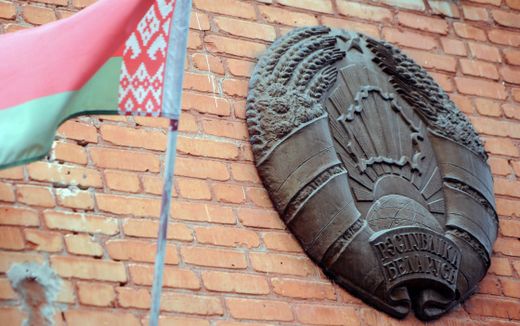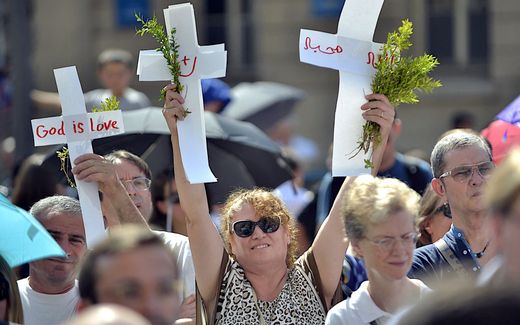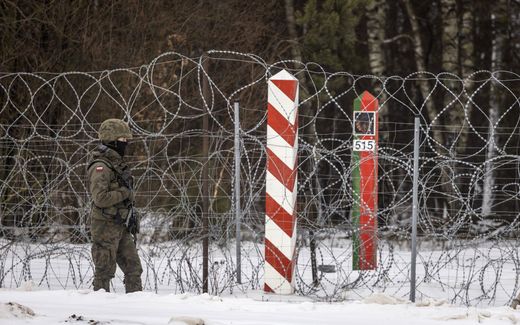Owning a Bible might become illegal in Belarus
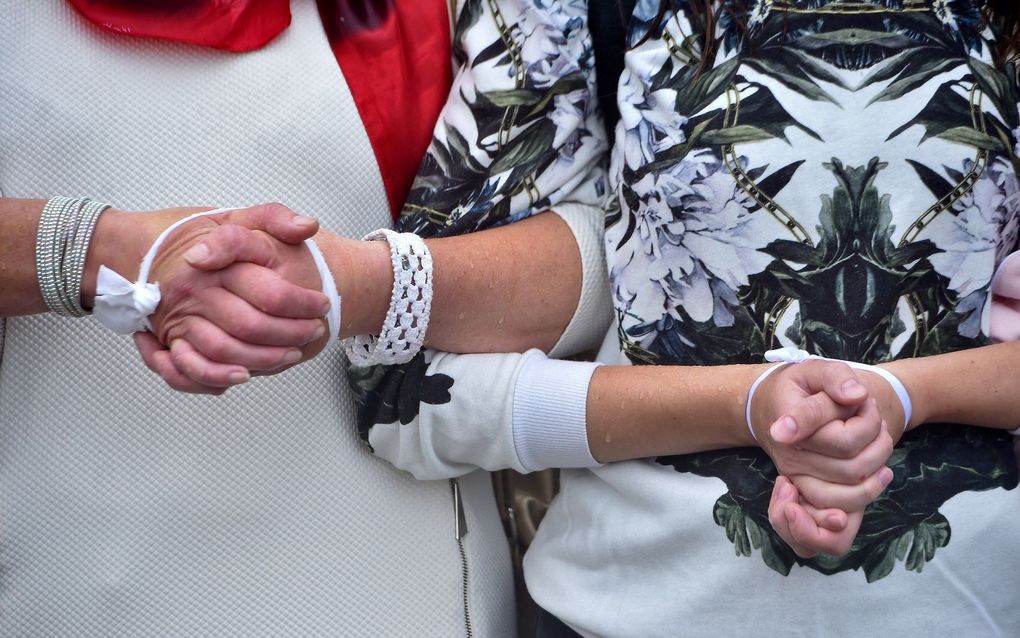
Women form a human chain outside the Catholic Church of Saints Simon and Helena to protest against police violence rallies of opposition supporters. Photo AFP, Sergei Gapon
Eastern Europe
The Belarussian government is considering tightening laws that affect religious believers again.
Belarus is amending the law “On Freedom of Conscience and Religious Organisations.” Until last week, the general public could give feedback on the draft law, inVictory reports. According to the news website, the new amendments could even go as far as abolishing freedom of conscience.
According to Alexander Rumak, Commissioner for Religious and Ethnic Affairs, the changes are necessary to make the law more applicable, bring it into line with the Constitutions and modernise “relations between the authorities and religious organisations.” With the amendments, the law in Belarus will become more similar to restrictive laws in Russia, Uzbekistan and Kazakhstan, inVictory warns.
Even though Commissioner Rumak attempts to assure churches will not experience any negative “social, financial and economic consequences”, religious organisations worry.
Concerns
The Conference of Catholic Bishops in Belarus (CCEB) expects difficulties in the future. During the public consultation, conference members submitted a consultation with their concerns. One of these worries is, for example, that religious organisations will have to keep track of which children attend Sunday schools. They believe that this is an infringement on the rights of believers.
In addition, they point out that the law is contradictory, as it demands parents to submit a written statement about their religious convictions. At the same time, it is forbidden to speak about these convictions publicly.
Orthodox priest Alexander Shramko worries most about the special attention that the law pays to “non-liturgical activities of religious organisations.” He notes that the law increases state control on these activities, which are important for religious organisations to keep in touch with society, Shramko writes in his article in Belarus 2020.
The amendments will also give the Commissioner for Religious and Ethnic Affairs more power. On the one hand, it forbids political activities on religious property, and on the other hand, it gives the Commissioner the sole power to terminate any religious events.
Registration
In addition, acquiring mandatory registration will become much more difficult for religious organisations. If the amendments come into force, organisations can only obtain such registration if they have been active on the Belarussian territory for at least thirty years. Also, they must consist of at least 15 communities. At the same time, the law specifies that activities of unregistered religious organisations are prohibited and that only a Belarussian citizen may lead a religious organisation. Furthermore, the list of reasons why a church can be closed is extended.
The amendments also increase the power of local authorities to control religious organisations and conduct inspections, inVictory writes. In addition, religious activities are only allowed on religious properties. Therefore, praying cannot occur in a public building or even on residential premises.
Also, religious literature should be limited to religious buildings, the amendment reads. That raises the question of whether university libraries, for example, are still allowed to keep Bibles, Korans and other sacred books, the Conference of Catholic Bishops in Belarus points out. “Will there be seizures of Bibles?” they ask in their feedback.
Priest Shramko firmly believes that these measures “reveal the entire vigilance of the regime in relation to any uncontrolled influence on the minds.”
Related Articles


